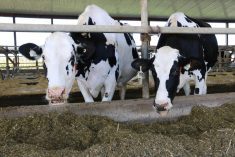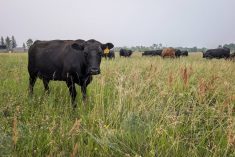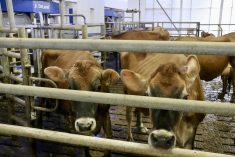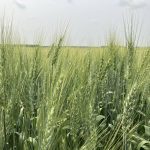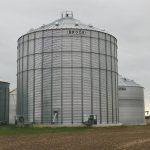Compensation to Canada’s supply-managed farmers, to offset domestic market share dealt away in two recent free trade pacts, will now move more quickly to dairy farmers — and will take the form of new programs for feather sectors.
Federal Agriculture Minister Marie-Claude Bibeau on Saturday announced $1.405 billion in compensation, as pledged in August last year to dairy farmers on an eight-year timeline, will instead flow as three years’ worth of direct payments.
That’s on top of the $345 million already paid out to dairy farms last December and January and a previously announced $250 million on-farm investment program.
Read Also
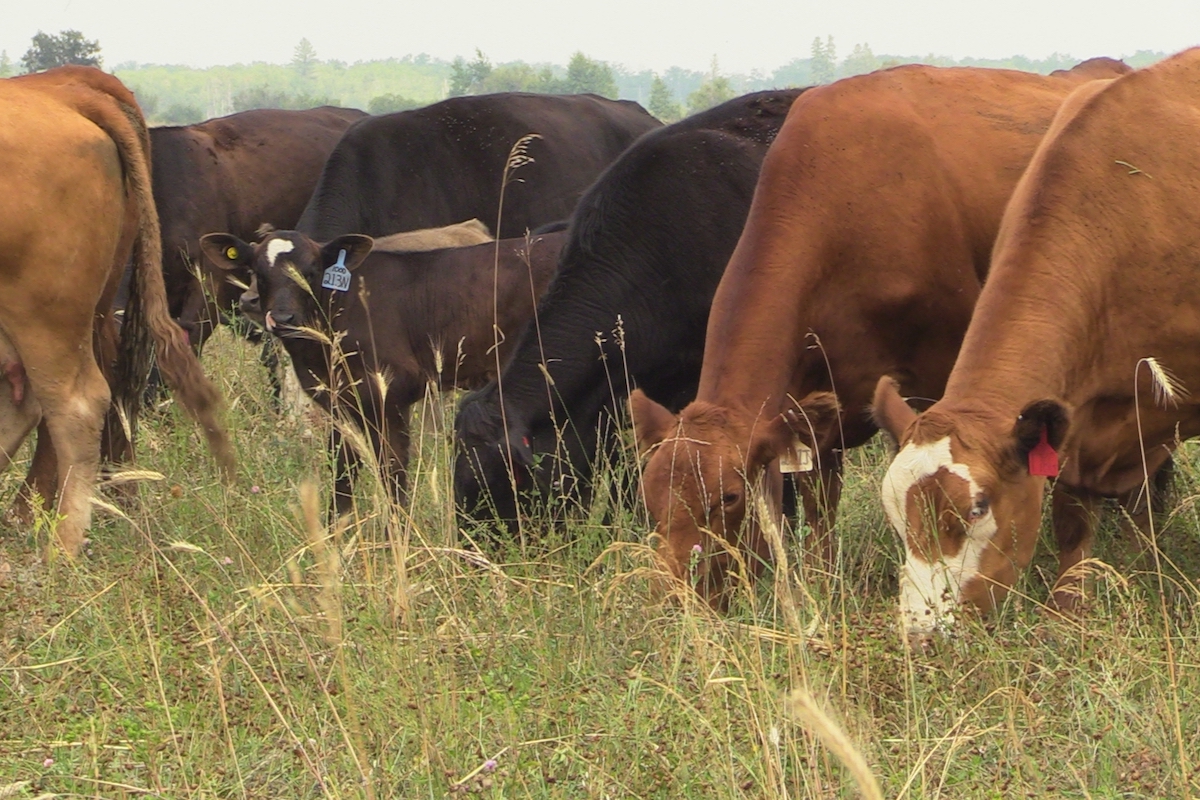
Beef industry weighs in on AAFC research cuts
The Canadian Cattle Association and Beef Cattle Research Council said cuts to federal research centres and programs will have long-term debilitating consequences for the beef industry.
Bibeau on Saturday also announced $691 million for a 10-year run of programs for supply-managed Canadian chicken, turkey, egg and broiler hatching egg producers.
Citing “sector demands,” the government said its feather-sector programs will go to “drive innovation and growth for farmers.”
The programs are to be designed “in consultation with sector representatives and launched as soon as possible,” the government said.
“Today’s announcement of a substantial compensation package for our dairy, poultry and egg farmers shows our support for a strong supply management sector for many generations to come,” Bibeau said in a release.
For dairy farmers, the new schedule calls for cash payments of $468 million in 2020-21, $469 million in 2021-22 and $468 million in 2022-23, to be issued “on the basis of their milk quota.”
The government gave the example of an owner of an 80-cow dairy farm, who would see a direct payment of about $38,000 in each of those years.
For affected sectors, Saturday’s announcement is meant to make good on long-pledged compensation for market access concessions Ottawa made to foreign exports in negotiating two major trade pacts.
Specifically, Saturday’s announcements cover the Comprehensive Economic and Trade Agreement (CETA) between Canada and the European Union, and the Comprehensive and Progressive Agreement for Trans-Pacific Partnership (CPTPP) including Canada and 10 Asia-Pacific nations. The pacts took initial effect in September 2017 and late December 2018 respectively.
Ottawa reiterated Saturday it “remains committed to engaging the sector on full and fair compensation” for the Canada-U.S.-Mexico Agreement (CUSMA) — the successor deal to the North American Free Trade Agreement (NAFTA) — as well as compensation to processors of supply managed products.
Once they’re fully phased in, dairy concessions made under CETA, CPTPP and CUSMA, along with Canada’s World Trade Organization (WTO) commitments, are estimated to be worth about 10 per cent of Canada’s current milk output alone, the government said.
(Dairy Farmers of Canada (DFC) separately estimates that by 2024, 18 per cent of domestic dairy production will have been “outsourced to foreign producers who will supply milk for imported dairy products that wind up on Canadian store shelves.”)
The government on Saturday also reiterated its post-CUSMA pledge “that there will be no more concessions on supply management in future trade negotiations,” including the recently agreed-upon transitional trade deal with the United Kingdom and future U.K. trade talks.
‘Time to deliver’
Representatives of the affected sectors lined up Saturday to hail the government’s latest pledges on compensation and programming.
Dairy farmers’ objective “is to be better prepared to face the intensification of competition from imported dairy products made from milk produced elsewhere” due to trade pact concessions, DFC president Pierre Lampron said in a separate release Saturday.
On-farm investments to that effect “can only come with a level of certainty as it relates to the promised compensation,” he said. “Reducing the timelines for the scheduled payments is recognition by the government of the importance of the foreign competition we face, this is why today’s announcement is so significant.”
Egg Farmers of Canada, Chicken Farmers of Canada (CFC), Turkey Farmers of Canada and Canadian Hatching Egg Producers, in a separate joint release, said the pledge of new programs “is a step in the right direction towards supporting farmers as they make ongoing improvements to their operations and enhance the long-term efficiency and sustainability of their farms.”
Canadian poultry and egg farmers “stand to suffer losses of billions in net operating income” from concessions made in the CPTPP alone, the groups said.
Saturday’s announcement, they said, draws on recommendations made in April last year by a poultry sector working group which had assessed the impact of the various trade deals in question.
“Farmers have waited a long time to see action on this file, and we believe that this is a step in the right direction,” CFC chair Benoit Fontaine said in the government’s release.
The feather groups said their farmers have also suffered “significant market losses” due to CUSMA and “look forward to working with government officials to assess CUSMA support measures.”
The federal opposition Conservatives’ agriculture critic Lianne Rood, in a separate release Saturday, described Bibeau’s announcements as more promises on which the Liberals have yet to pay up. The feather sector programs aren’t yet in place, she said, and dairy “farmers are, still, waiting for ‘Year 2’ payments.”
Further, she said, “we still have nothing on the table about (CUSMA). It is past time to deliver on promises made to supply-managed farmers.” — Glacier FarmMedia Network




